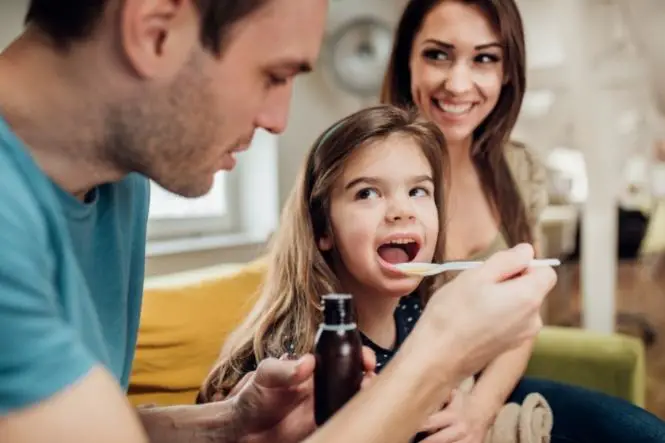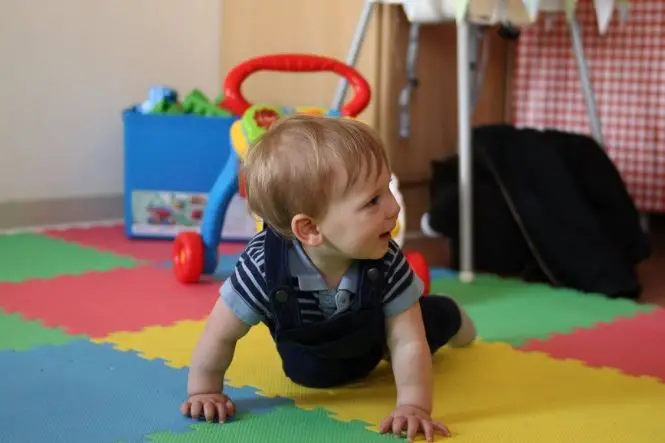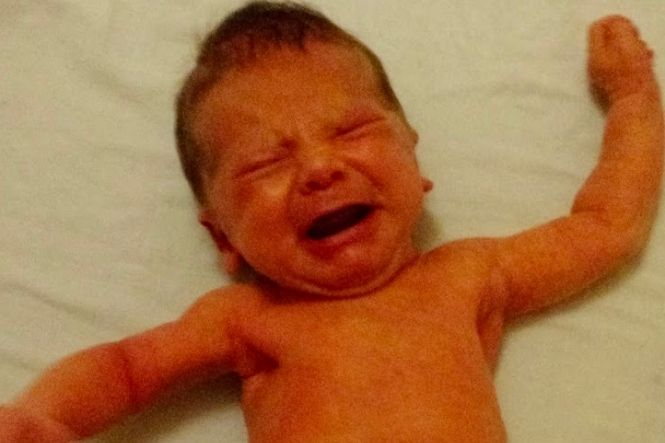Cough medicines have made the news is recent years for being potentially dangerous to young children under the age of 2. Many medical professionals advise parents of young children to allow a cold to develop naturally and only use a cough medicine if it contains few active ingredients, decongestants and antihistamines. Asking your GP before purchasing an over-the-counter cough medicine for young children is recommended.
Children & Coughing
Coughs accompany most common colds, but they also may indicate another condition. Respiratory infections of any sort (including common colds) may cause coughing and it is estimated that most children bring home at least five such infections per year. Bacteria, asthma and/or allergies, irritants and foreign matter, such as food particles or tiny toys, can also cause coughing, so understanding why the cough has been triggered is important. If Asthma is the culprit then the child’s prescribed inhaler should be the first form of medication given, and the same goes for prescription allergy medicines.
Cold Treatments for Young Children
Though there are a variety of over-the-counter medications that claim to relieve the symptoms of a common cold, the fact remains that there is no cure for this annoying illness. If a wet cough (one that brings up mucus) accompanies your child’s cold, then many medical professionals recommend allowing it to develop naturally rather than trying to suppress it.
However, a dry cough that keeps a child (and her parents) awake at night may be counter-productive. Deciding to use over-the-counter cough medicine for these night-time coughs may be a good idea in order to allow everyone to get the proper rest needed to fight the illness and return to normal health. Just make sure you discuss the symptoms and age of your child with a chemist or GP before investing in a brand.
Visiting the GP
Though the common cold can not be cured, there are many reasons that visiting a GP may be a good idea when a child has a cough. If, for example, the child is having great difficulty breathing and shows signs of blue lips, you should call the emergency services straightaway. If chest pain, severe coughing fits or even evidence that something has or was clogging the airway accompanies a cough, then you should take your child to see the GP. (If you child has a blocked airway, it may be choking, so read our article on First Aid for Choking.
Children should also be brought to the GP if they have a cough for longer than three weeks, the cough begins to sound odd (seal-like, high-pitched or weezy) and/or asthma accompanies the coughing. Even if cough medicine does provide some measure of relief, a medical professional should be consulted to determine the best course of action.
Cough medicines and young children are not necessarily always the best match. Discussing your child’s cough and age with a chemist or GP is always a good idea before deciding on an over-the-counter cough medicine for children under the age of 12. Visiting the GP is also a good idea if a cough develops or is accompanied by more worrying signs or symptoms.





